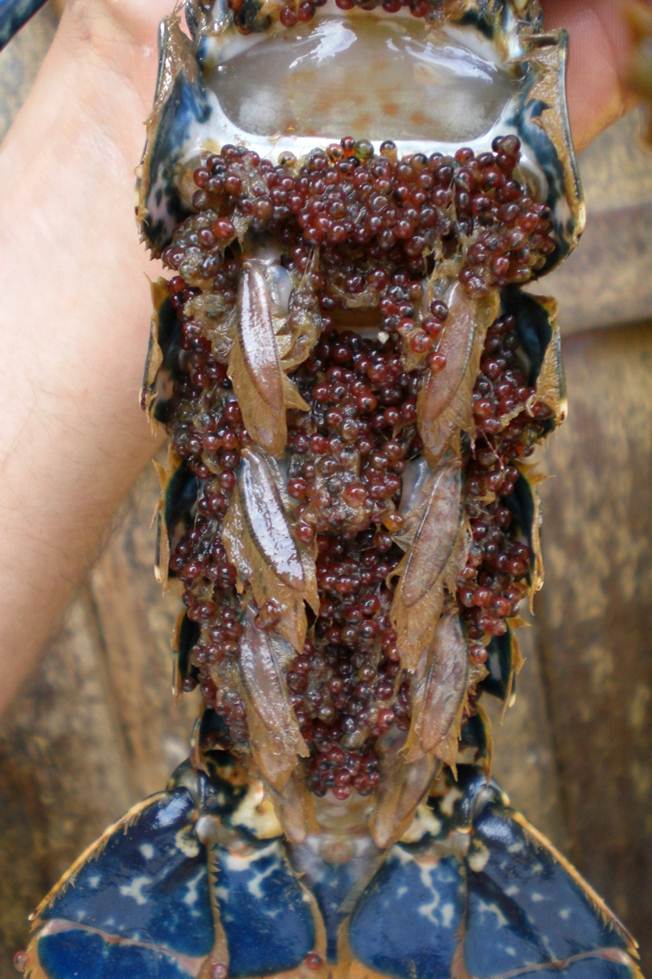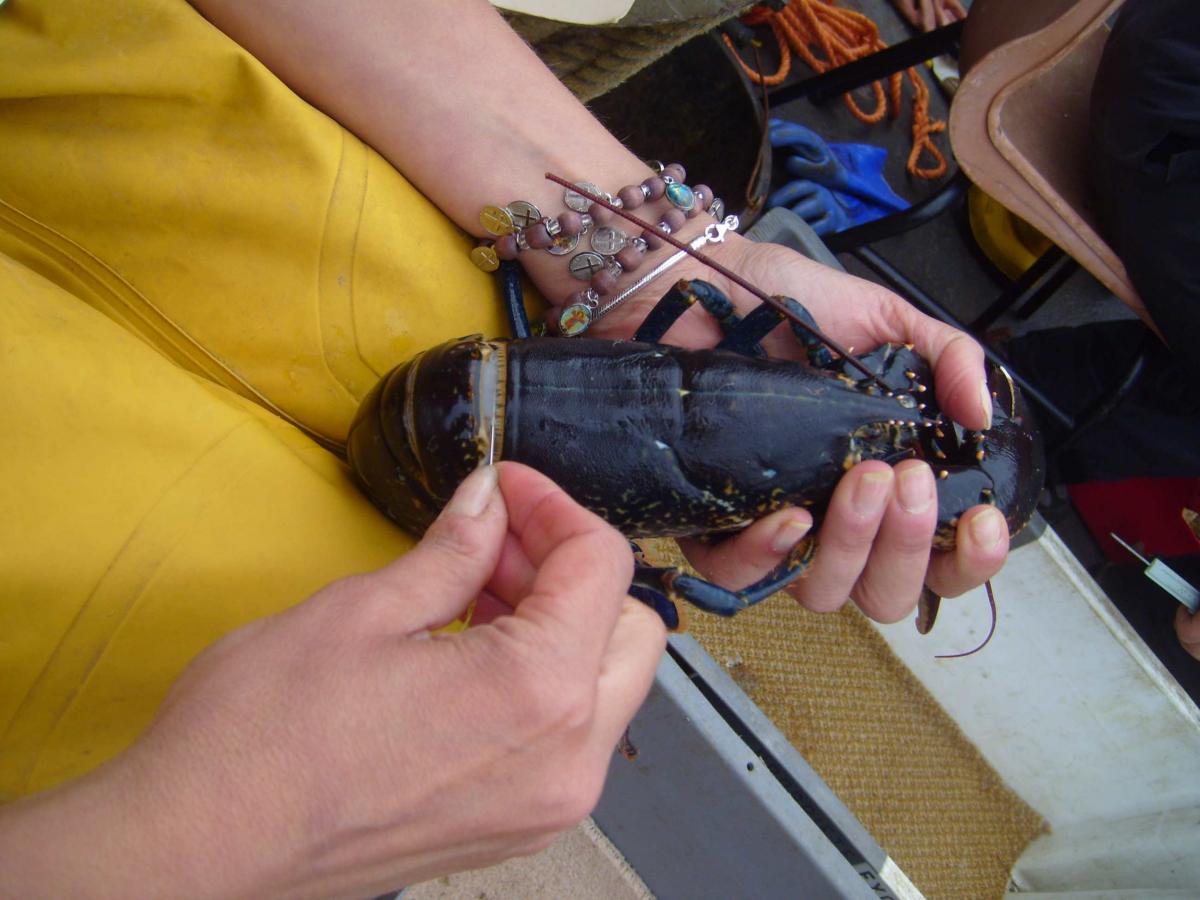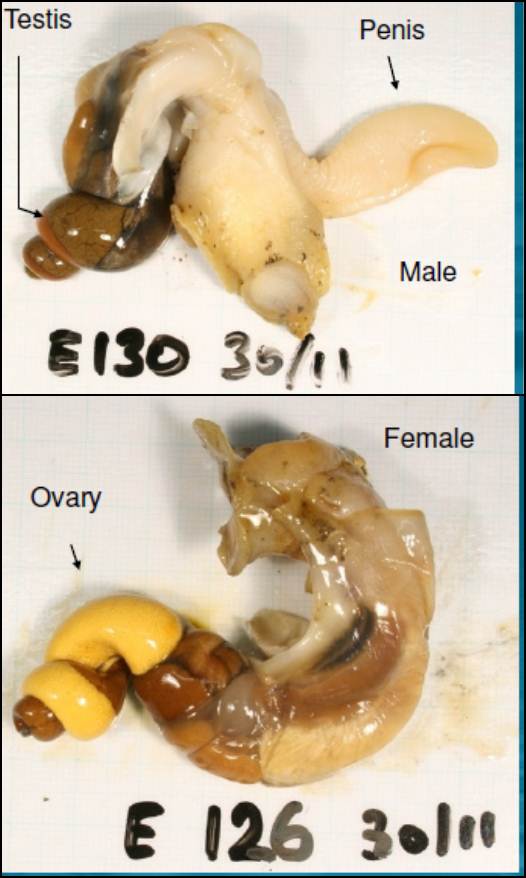She may have kept the best for last (measuring a snail’s sexy bits) but Sara Clark’s talk was just as interesting throughout. As Principal Environment Officer for Devon and Severn Inshore Fisheries and Conservation Authority, hers is a key position in the small team tasked to seek a balance between healthy seas and viable fishing. They implement policy, researching the impact, enacting the bye-laws and overseeing enforcement for 4000 km2 of coastal waters, Devon south & north …to Gloucester.
the bye-laws and overseeing enforcement for 4000 km2 of coastal waters, Devon south & north …to Gloucester.
Marine Protected Areas are a main focus, and Lundy the sole North Devon MPA. Net shellfish emigration from the No Take Zone is a key question for ongoing research following earlier findings of benefits to lobster and brown crab populations.
Current research uses lobster tagging and fishermen’s diaries. Light traps for larvae have also been successfully deployed. So far it appears that most adult lobsters stay in & around the NTZ, though occasional nomads can travel up to 25km.
lobster tagging and fishermen’s diaries. Light traps for larvae have also been successfully deployed. So far it appears that most adult lobsters stay in & around the NTZ, though occasional nomads can travel up to 25km.
The seasonality of egg bearing females (they can hold on to sperm until ready) is also being studied with interest in the dispersal of larvae.
Lundy NTZ work has been underway for over 10 years. More recent is the work on mussels in the Taw/Torridge, with a study of stock at 5 shellfish waters revealing interesting size/location relationships  and some commercial potential. North Devon’s whelk fishery is already well developed, their export to Korea being one of Devon’s largest fisheries.
and some commercial potential. North Devon’s whelk fishery is already well developed, their export to Korea being one of Devon’s largest fisheries.
In order to minimise the impact upon stocks they need to reproduce before being taken, hence the study of a whelk’s sexy bits. Size matters indicating when they reach sexual maturity and once known net mesh and hence minimum landing size can be adjusted accordingly.
Such sustainable solutions for the future of our marine environment and fishing industry seem to be very much on the agenda now and into a busy future for Sarah and her team. We wish them well.

